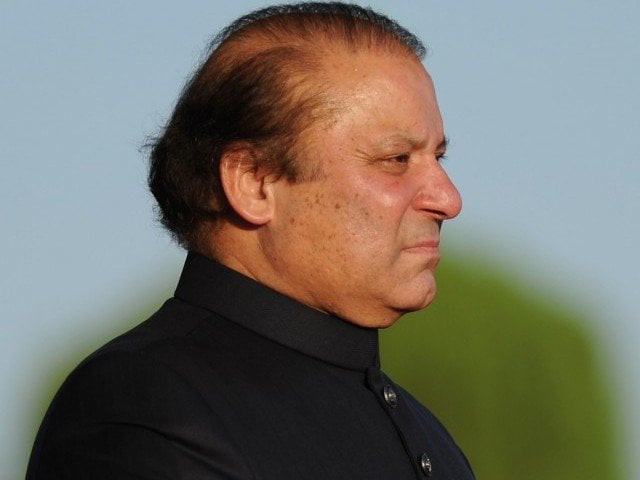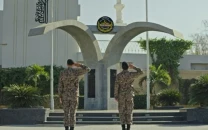Sealing of Sharif family’s sugar mill challenged in SC
Petitioner objects that entire proceedings before LHC suffered from procedural impropriety

File photo of Prime Minister Nawaz Sharif. PHOTO: AFP
The petition was filed by the Chaudhry Sugar Mills (Rahim Yar Khan) through senior lawyers Makhdoom Ali Khan and Mustafa Ramday under Article 185(3) of the constitution.
The petitioner prayed the Supreme Court to grant leave to appeal and set aside the LHC’s March 2 order, wherein their sugar mills were relocated while notification No.AEA-III-3-5/2011 dated 04.12.2015 (Relocation Policy) was suspended.
In 2015, Haseeb Waqas Sugar Mills Limited (HWSML) and Ittefaq Sugar Mills Limited (ISML), which are also owned by the Sharif family, decided to relocate their existing sugar mills from Nankana Sahib to Muzaffargarh and from Pak Patan to Channigoth district, Bahawalpur, respectively.
Decisive action: LHC deals another blow to Chaudhry Sugar Mills
A number of constitutional petitions were filed in the LHC challenging their relocation.
The Sharif family also prayed to allow them to commence (operation) and not to place any restraint on the operation of their sugar mill in Rahim Yar Khan.
It is contended in the petition that according to the notification dated 6.12.2006 (2006 Policy), there was no ban on relocating an existing sugar mill, adding the 2006 Policy only barred setting up a new sugar mill. It further barred increasing the size of an existing mill.
“The petitioner was neither setting up a new sugar mill nor expanding the size of an existing mill. It was simply relocating an existing mill without expanding the size,” says the petition.
Politics at lightning speed
The applicant questioned whether the high court was justified in concluding at a preliminary stage that the relocation of the petitioner’s mill was in contravention of the 2006 Policy.
It is also clarified through the petition that Prime Minister Nawaz Sharif is neither a shareholder nor a director in the petitioner.
“There was nothing on record to suggest that the prime minister was associated with the petitioner,” it said.
SC suspends operation of Sharif family's sugar mills
Moreover, it questioned: “Whether the high court was, in the absence of any evidence, justified in associating the prime minister of Pakistan with the affairs of the petitioner and drawing an adverse inference from it denying relief?”
The petition contended that the court did not consider the fundamental principles of deciding applications for interlocutory relief under Order XXXIX, Rules 1 and 2 of CPC.
The petitioner also objected that the entire proceedings before the LHC suffered from procedural impropriety.



















COMMENTS
Comments are moderated and generally will be posted if they are on-topic and not abusive.
For more information, please see our Comments FAQ